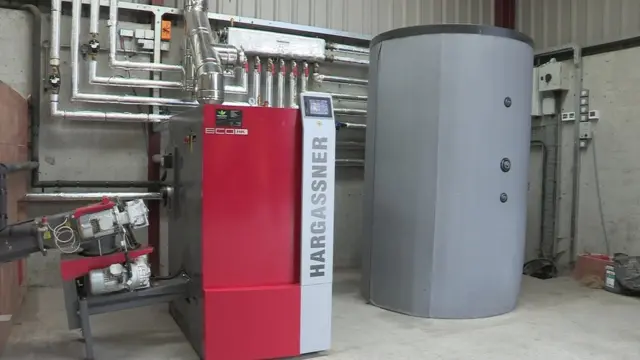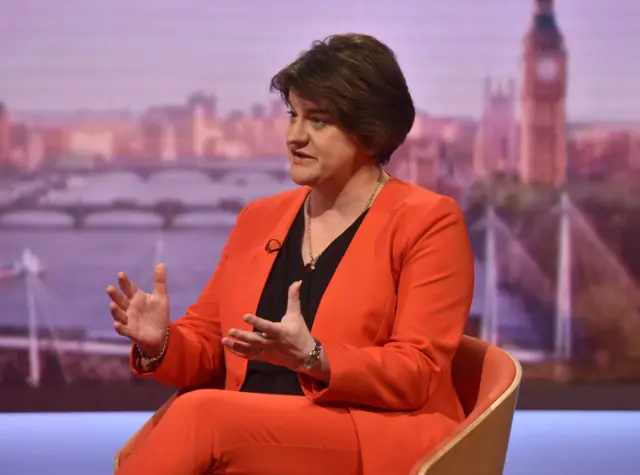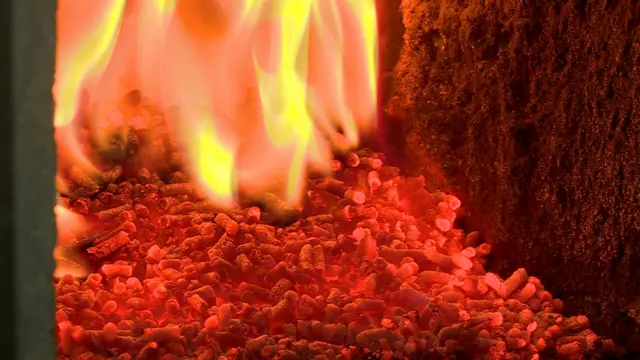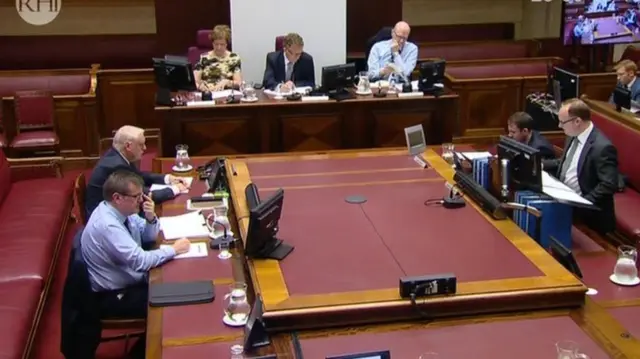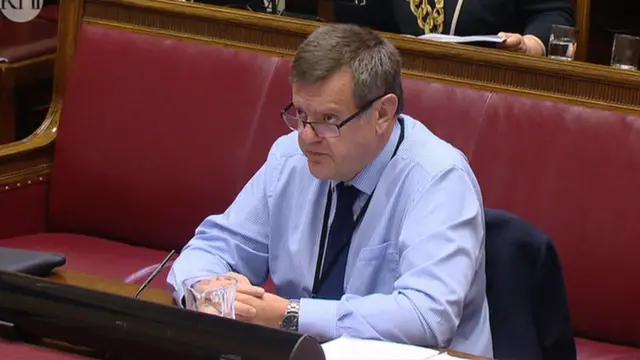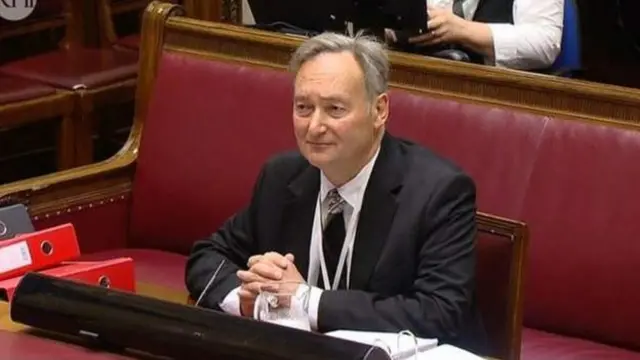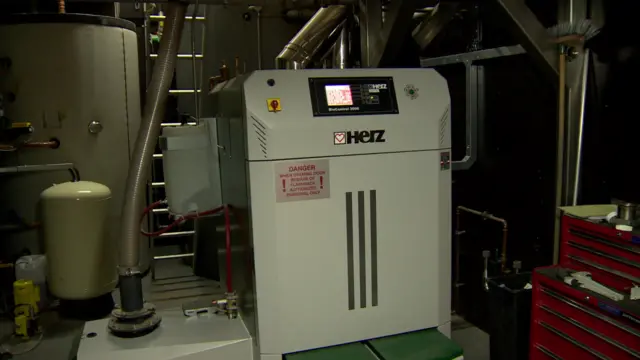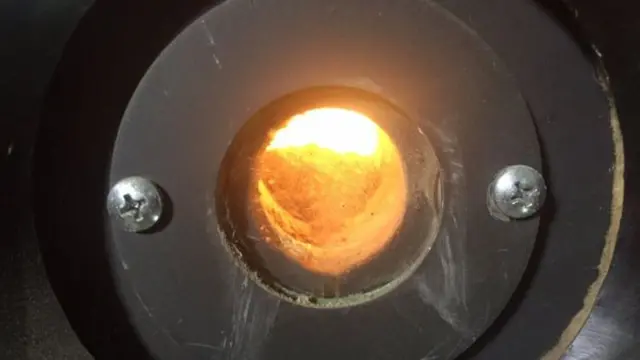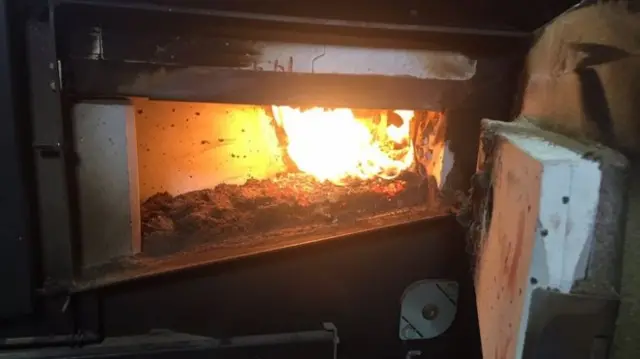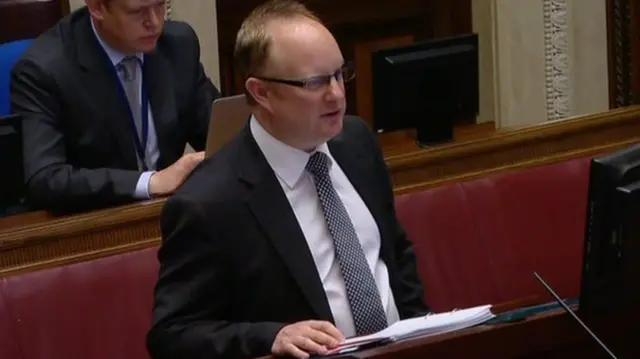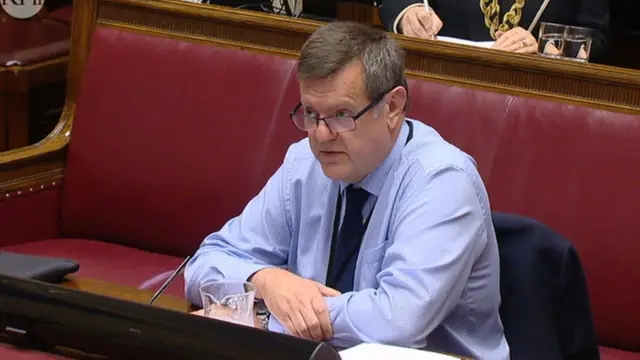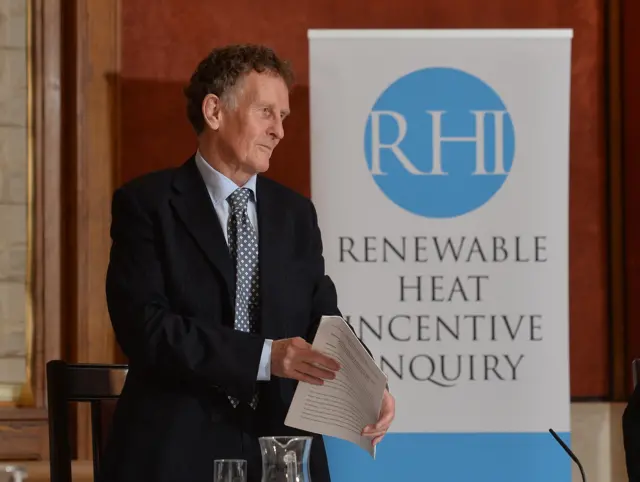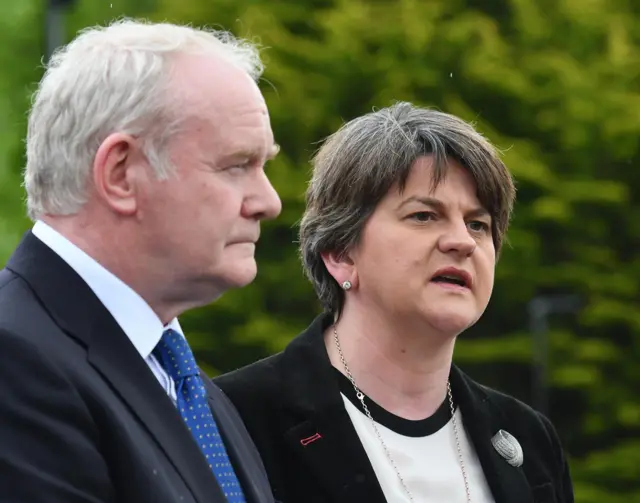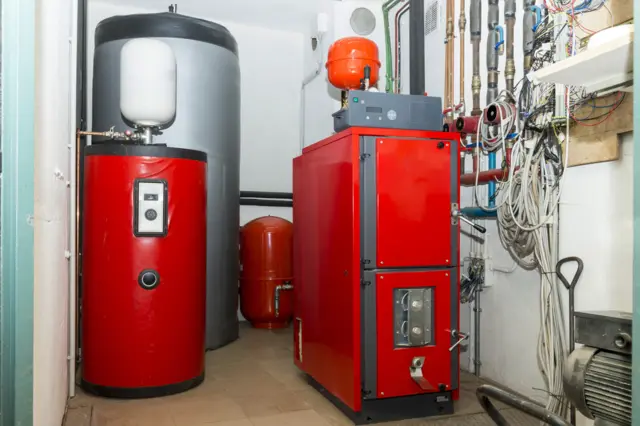'Special adviser raised concerns about RHI fraud'published at 13:15 BST 28 June 2018
Tim Cairns, the former DUP adviser, has told the inquiry that he raised with concerns with Mr Stewart about potential fraud in the scheme - issues that had been brought to his notice by fellow DUP adviser Dr Andrew Crawford.
Mr Cairns said he raised the matter with the senior DETI civil servant at least 10 times.
But Mr Stewart says it was more like twice and that he was given no source for the concerns or details about what was being alleged - there was a "a general vagueness" about the reports.
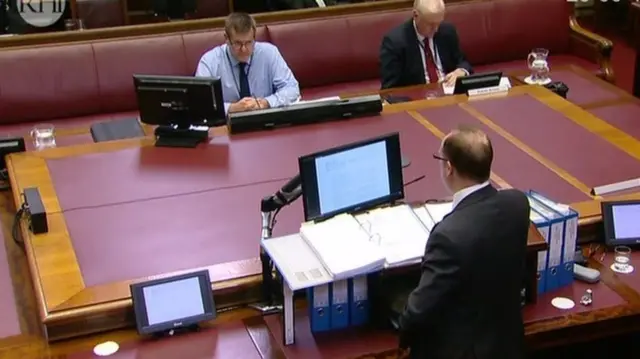 Image source, RHI Inquiry
Image source, RHI InquiryMr Stewart had his officials check with the scheme's administrator Ofgem, which replied that there had been only four incidences of problems - all of them minor matters.
He's also highly critical of Ofgem's method of inspections, saying they were "devoid of utility" because claimants were given prior warning that they would receive a visit from auditors.
Later investigations of RHI scheme installations, carried out by by the professional services firm PwC, found that there was concern or suspected fraud in more than 50% of boilers that were examined.

